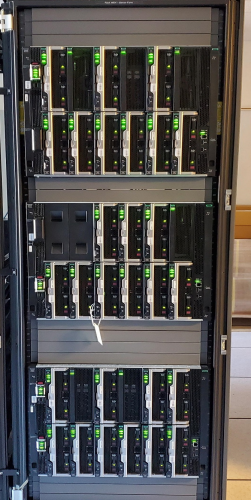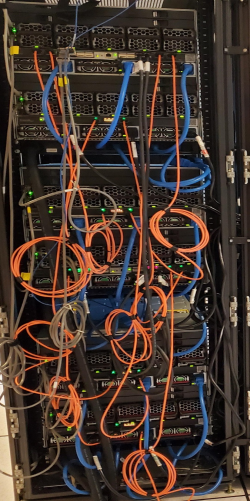What does Speed Consist of?
- Twenty four (24) 32-core compute nodes, each with 512 GB of memory and approximately 1 TB of local volatile-scratch disk space.
- Twelve (12) NVIDIA Tesla P6 GPUs, with 16 GB of memory (compatible with the CUDA, OpenGL, OpenCL, and Vulkan APIs).
- 4 VIDPRO nodes, with 6 P6 cards, and 6 V100 cards (32GB), and 256GB of RAM.
- 7 new SPEED2 servers with 64 CPU cores each 4x A100 80 GB GPUs, partitioned into 4x 20GB each; larger local storage for TMPDIR.
- One AMD FirePro S7150 GPU, with 8 GB of memory (compatible with the Direct X, OpenGL, OpenCL, and Vulkan APIs).
Job Management is handled by the Slurm Workload Manager.
The "cluster" mounts multi-TB, NFS-provided storage, which serves both persistent-scratch data (not backed up) and persistent-store data (backed up).



